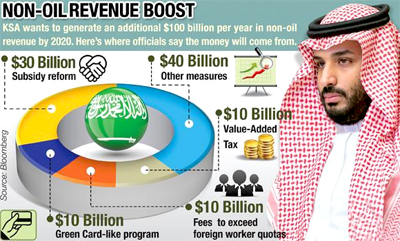Riyadh, Apr 7: Saudi Arabia’s plan to issue permanent residence or “green cards” to foreign workers has been warmly welcomed by the expatriate community.

The plan will abolish the existing sponsorship system for holders, who will be required to pay zakat and value-added taxes, if any, besides premiums on insurance, etc. They can own property and undertake commercial, industrial and related activities.
“The plan is very welcome for those living here for over 40 years. I would also suggest that naturalization be given to those who have at least one child willing to serve in the armed forces in any capacity,” said Amir Qayyum, a business development executive from India.
“This is actually in recognition of the universal human rights of residency. We are glad to see the host government extending such a privilege to deserving expats,” said John Monterona, convener of the new OFW Forces Worldwide.
A senior systems engineer at Tawuniya, Saleh Ampaso Bucay, who has been working here since 1992, described the move as a dream come true.
“I am just like many other expatriates who have spent more than half of their lives in this country. All my children were born here. So it is really a great honor if this privilege of either permanent residence or a green card is granted to us,” Bucay observed.
He added that as a Muslim, it will also be a great opportunity to work hand in hand with the citizens in developing the country and protecting it from the enemies of Islam. “I love this country and would like to die and be buried here,” he said.
Gilbert G. Alarcon, senior ISO system auditor at Dar Arriyadh Consultants, said it is a good development as expats already consider Saudi Arabia their second home. “The feeling of acceptance in retrospect gives more meaning to an already fruitful partnership and cooperation between the citizens and expats.”
Rey Eduard Quiblat Umel, an architect and a project engineer, termed King Salman’s wisdom and vision “very exemplary.” The Saudi-Philippine partnership will increase by leaps and bounds, boosting the development of their peoples, he said.
“This will also help the Kingdom’s economy and increase its revenues. It will bolster their manpower without relying on oil,” said Jehad Zacaria Pangcoga, from the Philippines.





Comments
Really its great news and happiest moment for me even though iam not in saudi. Really i appreciate the king's decision.
Add new comment